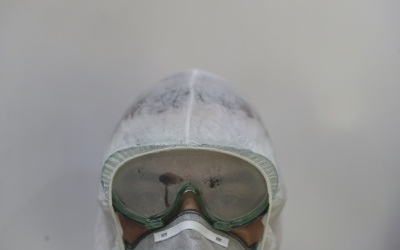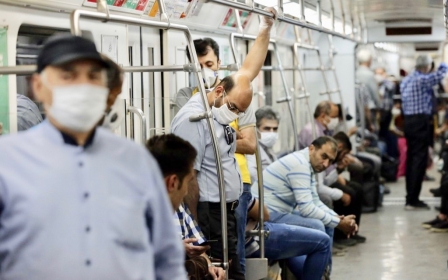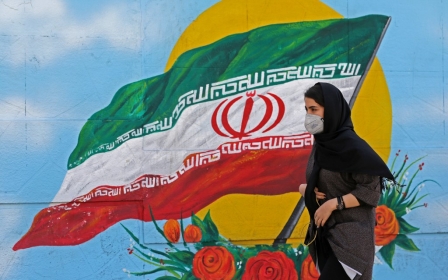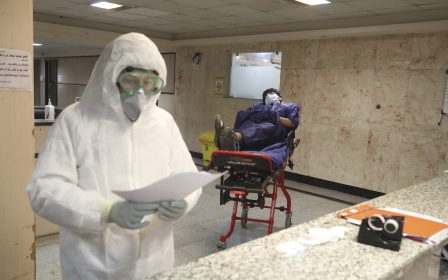Coronavirus: Iran records highest daily death toll in two months
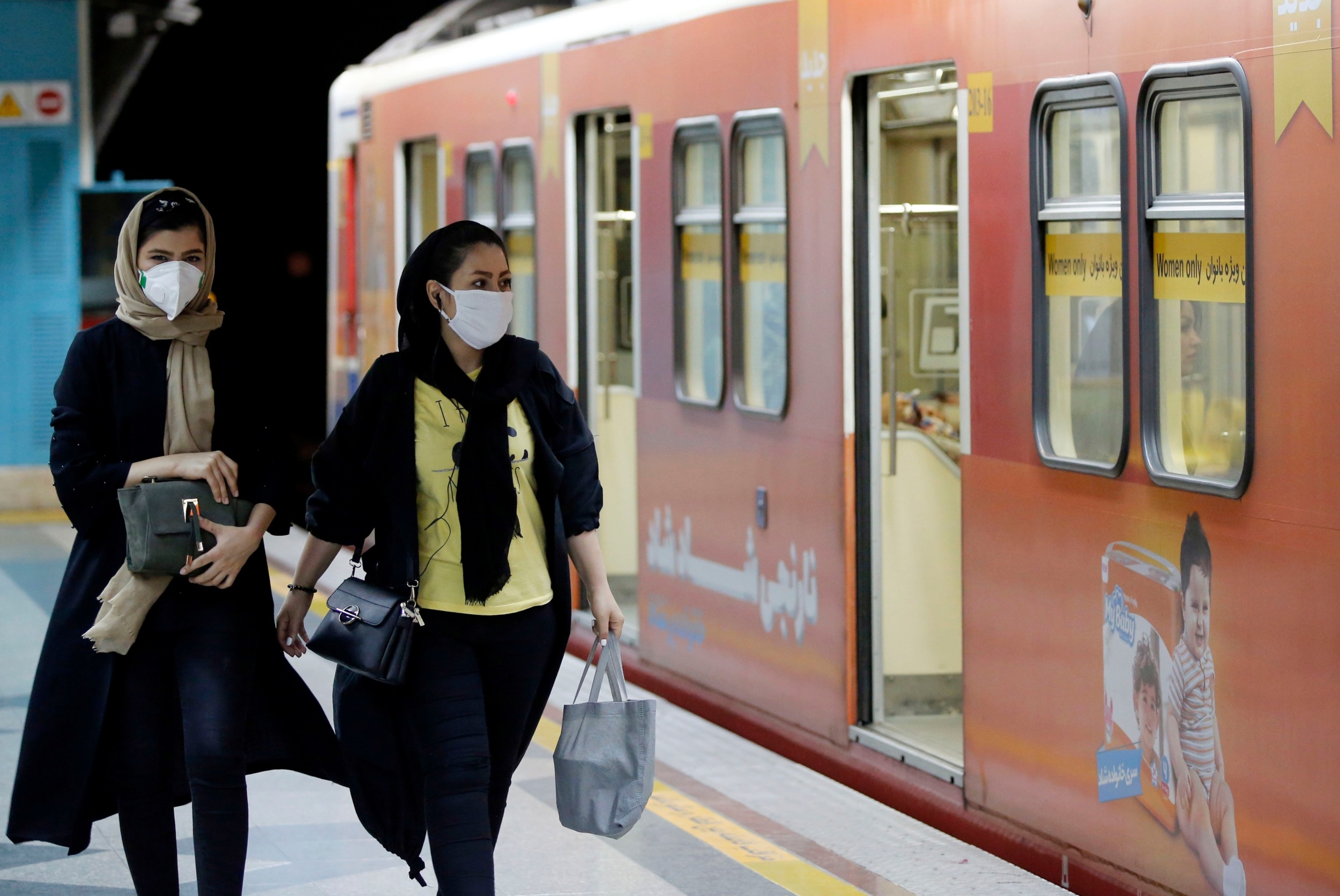
Iran reported more than 100 deaths in a single day from the novel coronavirus on Sunday for the first time in two months, with authorities saying a recent surge in confirmed cases is due to increased testing.
The Islamic republic has struggled to contain what has become the Middle East's deadliest outbreak of the Covid-19 illness since it reported its first cases in the Muslim holy city of Qom in February.
New MEE newsletter: Jerusalem Dispatch
Sign up to get the latest insights and analysis on Israel-Palestine, alongside Turkey Unpacked and other MEE newsletters
Since April, the country has progressively lifted restrictions aimed at containing the outbreak to ease the intense pressure on its sanctions-hit economy.
Official figures have shown a rising trajectory in new confirmed cases since early May, when Iran hit a near two-month low in daily recorded infections.
In televised remarks, health ministry spokeswoman Sima Sadat Lari announced 107 deaths from Covid-19 in the previous 24 hours, raising the overall death toll in the country to 8,837.
"It was very painful for us to announce the triple digit figure," Lari said.
"This is an unpredictable and wild virus and may surprise us at any time," she added, urging Iranians to observe health protocols.
Iran had last recorded over 100 fatalities almost exactly two months earlier, with 111 dead on 13 April.
Lari also announced 2,472 new cases confirmed in the past day, bringing the total infection caseload to 187,427, with over 148,000 recoveries.
There has been scepticism at home and abroad about Iran's official Covid-19 figures, with concerns the real toll could be much higher.
Iranian President Hassan Rouhani on Saturday reproached citizens for failing to observe measures designed to rein in the virus.
It was "disturbing" to see that only "18 to 20 percent of people" observe health protocols and social distancing, down from "80 percent or more" between 20 April and 20 May, he said, citing a report.
According to Lari, seven of Iran's 31 provinces are currently classified as "red," the highest level on the country's colour-coded risk scale.
Rouhani has said the increase in reported infections should not be taken as a sign of a worsening health situation.
"When more tests are done, then naturally more cases are identified," he told a cabinet meeting on Wednesday.
The high number of recent cases "does not have a negative aspect to it and people should not worry," he said.
Iran has carried out more than 1.2 million Covid-19 tests since its first cases were reported, according to Lari.
The health ministry's head epidemiologist, Mohammad-Mehdi Gouya, said on 7 June that the primary cause of the surge in reported infections was due to testing those "with no or light symptoms".
The gradual easing of lockdown measures has also partly contributed to higher infections, he said.
Middle East Eye delivers independent and unrivalled coverage and analysis of the Middle East, North Africa and beyond. To learn more about republishing this content and the associated fees, please fill out this form. More about MEE can be found here.


